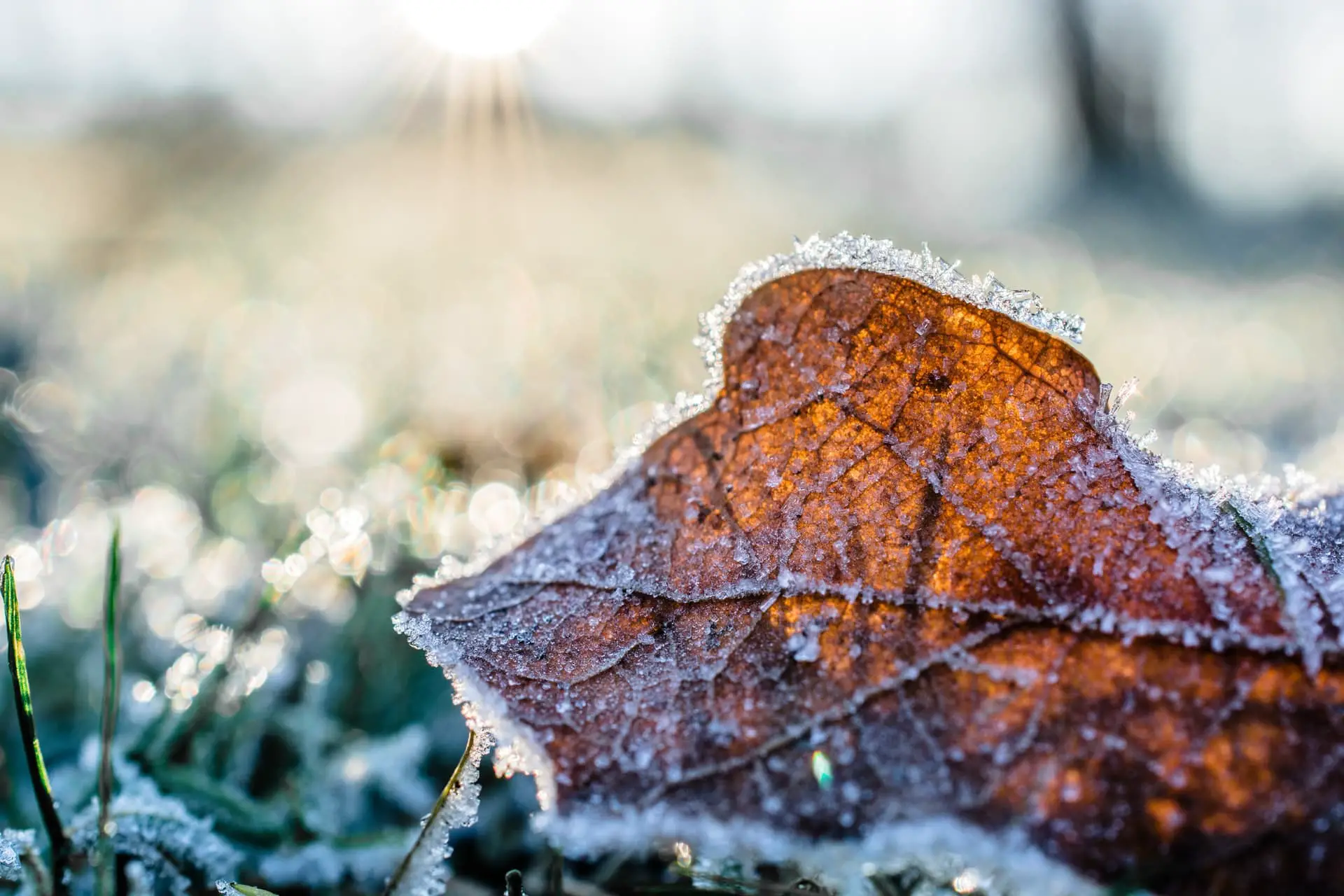Gardens are a beautiful sight to behold during the spring and summer, but the cold winter months can quickly become a garden’s worst nightmare. Here are 11 garden preparation tips to ensure that your plants will survive over the cold months until spring comes again.
Table of Contents
- 1 Tips to Prepare Your Garden For Winter
- 1.1 Prune Away Dead Plant Matter and Garden Debris
- 1.2 Protect Plants from Frost with Mulch or Plastic Film
- 1.3 Install Winter Fencing Around Your Garden
- 1.4 Water Plants Less Frequently in the Winter Months
- 1.5 Add Some Stone or Gravel to Garden Beds
- 1.6 Check on Your Plants Regularly
- 1.7 Bring Container Plants Indoors
- 1.8 Prepare Your Tools for Winter Storage
- 1.9 Keep Trees Well Trimmed During Winter
- 1.10 Add Some Ornamental Grasses to Your Garden
- 1.11 Wrap Your Hose Around the Faucet
- 2 Final Thoughts
Tips to Prepare Your Garden For Winter
Here are several tips you can begin to follow today to prepare your garden at home to survive the winter months.
Prune Away Dead Plant Matter and Garden Debris
Garden maintenance is one of the most important garden preparation tips. If you do not maintain your garden, it will become overrun with dead leaves and debris that can harbor harmful insects which are detrimental to your garden’s health.
Keep garden beds clear of dead plant matter and garden debris to ensure that your garden remains safe over the winter months.
Protect Plants from Frost with Mulch or Plastic Film
Plants are extremely sensitive to frost, especially those which have developed blooms in autumn such as chrysanthemums and dahlias. To protect these plants during frosts, you can use mulch or plastic film.
Mulch is a layer of organic or inorganic material that is spread over the surface of the soil to protect plants from frost and cold weather conditions. Mulch can be made up of materials such as straw, leaves, bark, compost, and manure.
The plastic film works in the same way as mulch, but it is less permeable to water and air. This makes it a better option than mulch for gardeners who live in areas with heavy rainfall or snowfall.
Install Winter Fencing Around Your Garden
The winter months are not difficult for just plants; animals feel the brunt before long as well. While a lot of animals hibernate during the winter months, some of them stay awake. Since most plants and animals are inactive, they have to forage for food, potentially leading them to your garden.
Install fencing around your garden to protect it from animals who may be looking for food. The fence should be at least six feet high and have a tight wire mesh to keep out small critters.
Water Plants Less Frequently in the Winter Months
While you do not want your garden to become completely dry, overwatering can also damage plants since the water might freeze up in the soil and damage the plant’s roots.
Water your plants less frequently in the winter months to prevent them from becoming waterlogged and damaged.
Add Some Stone or Gravel to Garden Beds
Adding some stone or gravel to garden beds can help with drainage during the winter months when rain and snow are more common. When rain or snowmelt seeps into the garden bed, it will quickly drain through the stone or gravel instead of pooling around the plants’ roots.
This garden preparation tip is especially important if you have a garden that is in an area that tends to accumulate water over the winter months.
Check on Your Plants Regularly
Even though your garden may be dormant during the winter months, that does not mean you should neglect it. Check on your garden regularly to ensure that there is no snow or ice build-up on plants, as this can cause damage.
If you live in an area where there is a lot of snowfall, be sure to check on your garden every few days to make sure that the snow is not burying your plants.
Bring Container Plants Indoors
If you have any container plants that are not hardy in cold weather, you will need to bring them indoors during the winter months. Most garden centers sell plants that are specifically bred for winter gardens and can withstand colder temperatures.
If you do not want to purchase new plants, you can take cuttings from garden plants that are hardy and root them inside over winter.
Prepare Your Tools for Winter Storage
It is important to prepare garden tools for storage before the cold weather sets in so they do not become damaged or rusted. Clean all garden tools thoroughly after each use and coat them with a thin layer of oil to prevent rust.
Take a garden hose and spray them from top to bottom, coating each section for at least one second. Let the garden tools dry completely before storing them in a cool dry place where they will not be exposed to moisture or sunlight.
Keep Trees Well Trimmed During Winter
Keeping trees well-trimmed during winter will help prevent damage caused by falling branches that can be weighed down by snow. You should also ensure that you do not cut back too much foliage in late autumn, as the trees will need the leaves to protect them from the cold weather.
If you are not comfortable trimming trees, you can hire a professional arborist to do it for you. This garden preparation tip is especially important if there are any large or tall trees in your garden.
Add Some Ornamental Grasses to Your Garden
Adding some ornamental grasses to garden beds can help prevent weeds from growing in winter. They will also add movement and an interesting texture when they sway gently in the wind, which makes them a great garden preparation tool that is also visually appealing.
To install your new ornamental grasses, dig into the garden bed several inches before planting each one. This will help them to become well-rooted and prevent them from being blown away in the wind.
Wrap Your Hose Around the Faucet
To prevent garden hoses from kinking up and becoming unusable during winter, it is important to wrap them around your garden faucets before you store them away. This will also help protect your garden hoses against freezing temperatures by keeping all of the water inside until springtime. You can start by folding your garden hose over several times until it forms a loop and hooking one end of the garden hose through one side of the loop before wrapping it around the faucet handle.
Final Thoughts
These are just a few garden preparation tips to help you get your garden ready for the winter months. We love to rehash the importance of speaking to experts and it’s no different when caring for your garden. Be sure to ask for the specific climate and weather conditions in your area when preparing your garden for winter. By taking those into account and following these simple tips, you can help ensure that your garden stays healthy and looks great all winter long!
For more helpful information, be sure to read our comprehensive guide to getting started with gardening



